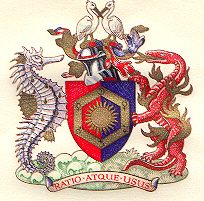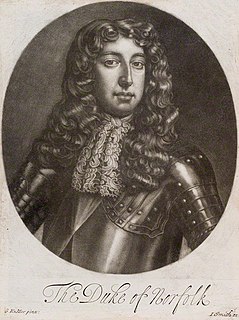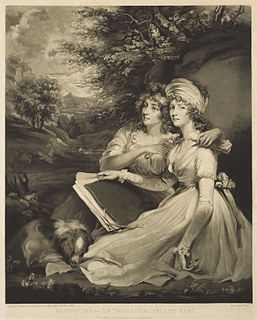Related Research Articles

Vice-Admiral Thomas Butler, 6th Earl of Ossory, KG, PC, PC (Ire) (1634–1680) was an Irish soldier and politician. He was the eldest son of James Butler, 1st Duke of Ormond but predeceased his father and therefore never became duke.

Thomas Trevor, 1st Baron Trevor, was a British judge and politician who was Attorney-General and later Lord Privy Seal.

Sir Edward Frankland, was an English chemist. He was one of the originators of organometallic chemistry and introduced the concept of combining power or valence. An expert in water quality and analysis, he was a member of the second royal commission on the pollution of rivers, and studied London's water quality for decades. He also studied luminous flames and the effects of atmospheric pressure on dense ignited gas, and was one of the discoverers of helium.

The Royal Institute of Chemistry was a British scientific organisation. Founded in 1877 as the Institute of Chemistry of Great Britain, its role was to focus on qualifications and the professional status of chemists, and its aim was to ensure that consulting and analytical chemists were properly trained and qualified. It awarded qualifications: AIC indicating full training, and FIC (fellow) indicating professional competence.

Henry Howard, 7th Duke of Norfolk, KG PC Earl Marshal was an English nobleman, politician, and soldier. He was the son of Henry Howard, 6th Duke of Norfolk and Lady Anne Somerset, daughter of Edward Somerset, 2nd Marquess of Worcester and Elizabeth Dormer. He was summoned to the House of Lords in his own right as Baron Mowbray in 1678. His unhappy marriage was a subject of much gossip, and ended in divorce.

The Frankland Baronetcy, of Thirkelby in the County of York, is a title in the Baronetage of England, created on 24 December 1660 for William Frankland. He later represented Thirsk in Parliament.

Sir Thomas Frankland Lewis, 1st Baronet was a British Poor Law Commissioner and moderate Tory MP.
Sir Thomas Frankland, 3rd Baronet, of Thirkleby in Yorkshire, was an English Whig politician who sat in the English and British House of Commons for over 30 years between 1708 and 1741.
Events from the year 1758 in Great Britain.
Edward Bernard was an English scholar and Savilian professor of astronomy at the University of Oxford, from 1673 to 1691.
This article is about the particular significance of the year 1730 to Wales and its people.
References
- ↑ "Fellows of the Royal Society", Royal Society. "Fellowship from 1660 onwards" (xlsx file on Google Docs via the Royal Society)